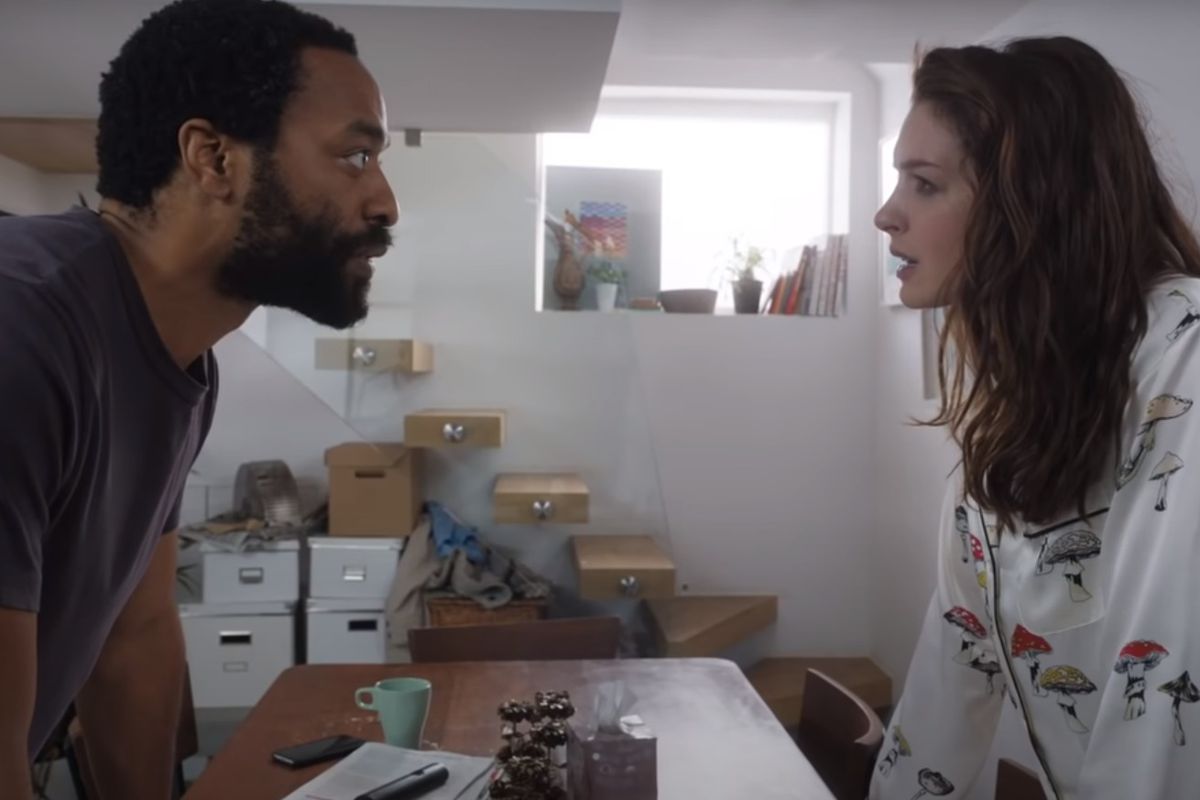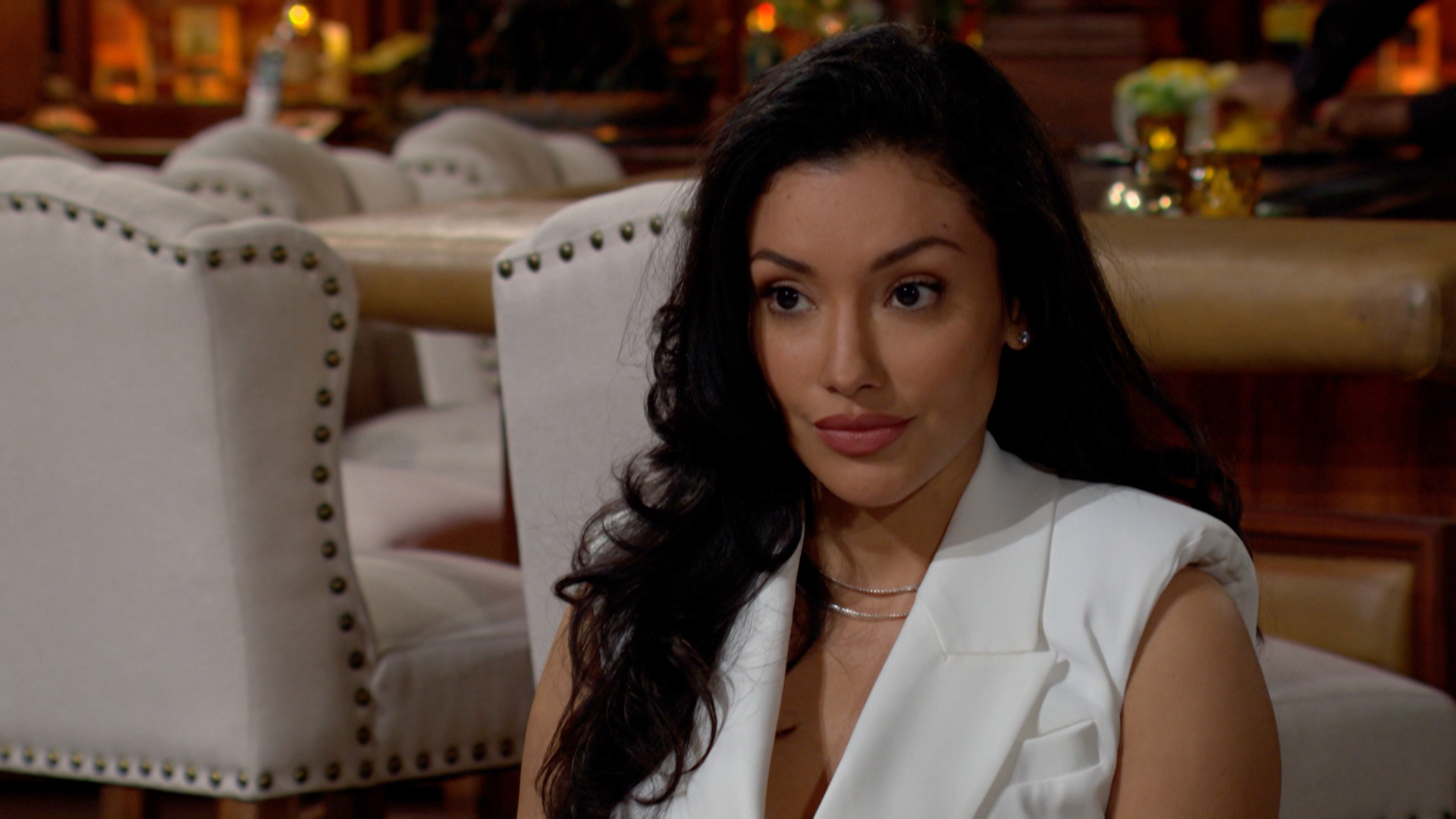What to Watch Verdict
Steven Knight's script balances perfectly with Doug Liman's direction to capture the realities of quarantine in a heist-movie confection.
Pros
- +
💎 Hathaway is extraordinary as a tightly-wound CEO who sees the heist as a way to get out of her career's golden handcuffs.
- +
💎 Knight pinpoints so many recognizable truths about the way that sheltering-in-place has affected our relationships and ourselves.
Cons
- -
💎 By the time Liman leans into the machinery of pulling off the heist, you care enough about these characters that you almost don't need for it to happen.
Eight-plus months into the worldwide pandemic, it’s difficult to be ready for fictional stories about life during quarantine. But Locked Down captures some quietly identifiable moments — especially for couples — while using the events of recent history as a backdrop for a shaggy half-British heist. Focusing a husband and wife who put their romantic estrangement aside to mount a heist they’re not entirely sure they even want to go through, Doug Liman’s latest attempts to make lemonade out of what we’re all going through personally and professionally, with a script by Steven Knight (Locke) thankfully gets the portions of sweet and sour mostly right. Meanwhile, Anne Hathaway and Chiwetel Ejiofor give dimensionality both to the calculation, and motivation, of this unexpected criminal opportunity, as well as to a relationship that was foundering long before the pair were forced to spend day and night together without end.
Hathaway (who evidently didn’t get enough of Knight after Serenity, which he directed) plays Linda Thurman, CEO of a luxury goods brand who’s been locked in a London townhome with her husband Paxton (Ejiofor) for several weeks of the 2020 lockdown. They’d decided to part ways just before the shelter-in-place order was announced, and share their individual misery with Paxton’s half-brother Stuart (Dule Hill) and his wife Jena (Jazmyn Simon) via zoom even as they try to make vague pleasantries with one another. Paxton, a courier with a criminal past, gets an unexpected offer from his boss Solomon (Ben Kingsley) to transport some high-priced goods in exchange for an opportunity to get out from behind the wheel. Simultaneously, Linda assesses the company’s lingering assets left in limbo by the disruption of the shutdown and learns that she has to pack up a high-priced display as London shopping mainstay Harrod’s — centerpiece of which is a $3 million diamond — and ship it off to New York where it will get safely locked away until normal life resumes again.
After learning that Paxton has been assigned to pick up her company’s goods, and is using a fake name to circumvent his boss’ restrictions, Linda panics because she knows he’ll be detained for theft the moment he steps foot in Harrod’s. But after reaching out to some former contacts at the department store to smooth the path for him to make his pick-up, she realizes that the pandemic offers an unexpected opportunity to steal the jewelry without anyone knowing until much later, if ever. Feeling the pressure of permanently separating from her husband, and also the golden handcuffs of a looming promotion at her own company, Linda begins to consider the possibility of pulling off her wild imaginary heist, leading both of them into risky territory as they come together for an adventure meant to save their individual futures, but rekindling the feelings of their shared past.
Knight’s 2013 Locke offered an extraordinary study in tension in a contained space long before conditions forced everyone indefinitely indoors, so it comes as no surprise that the screenwriter captures the feverish, unpredictable energy of the quarantine as well as he did a husband and father reckoning simultaneously with a pivotal concrete-pouring job and his own reluctant but contrite indiscretions. Paxton feels often painfully recognizable as a smart but struggling adventurer, furloughed from work but busier than ever with the ongoing responsibility of managing his own unhappiness; gallows humor is simultaneously an outlet and confession of his profound restlessness, a culmination of what we learn is a decade of amends and self-flagellation for a crime that has kept him from exploring the potential of his grandiose, literate imagination. Conversely, Linda is flourishing more than ever, shouldering the unenviable responsibility of layoffs by self-medicating with wine and cigarettes as her superiors (including a distant, entitled Ben Stiller) monitor her cutthroat efficiency with privileged remove. They are on their own journeys, long removed from the salad days of their marriage, and Knight skillfully observes how their individual tribulations overlap and intersect, leading to this impossible plot — and unexpected opportunity.
In fact, the film is so thorough and thoughtful in its portrayal of each of their perspectives that you begin to wonder whether they’ll even get to the “heist” itself. Together and alone, they contemplate and rationalize, wrestling with consequences that grow ever more distant as the lockdown continues, and the mirror of the choices they made before it began grows increasingly clear. What Knight really captures well is the excruciating self-examination that the pandemic has forced on many people — what they did before, why they’re doing it, whether they should continue “when this is all over.” Zoom conversations, the lifeline to friends, family and colleagues, become a platform for confession as much as communication connections alternately stall and dial in on an expression or moment of unintended honesty. Like us, the containment forces them to live with lots of thoughts and feeling they didn’t plan to entertain — or hadn’t fully admitted they even had — until the isolation and quiet forced them to the foreground.
Ejiofor has the slightly showier role; being smart enough to know you’re a little nuts seems easier than balancing a tightly-coiled center and edges fraying against your best efforts. But Hathaway is absolutely extraordinary as Linda, and her mass-firing Zoom call is a showcase that should always be included in highlight reels of her greatest moments; she navigates past the humdrum details and pragmatic informalities that have become part of every call to deliver a gutting punchline to her staff with the exact kind of wresting humanity you would hope a boss has about firing their team. Together, however, they’re really something special, as his perpatetic intellect fits seamlessly into her merciless focus, illuminating the dissipating outline of their relationship like the headlight of his prized motorcycle cutting through fog. It’s a tough challenge to show the chemistry of a relationship that we’re to understand is already over, but they pull it off.
Liman is a notoriously disorganized director, but whether it was the pandemic or Knight’s clockwork script, he attacks this with a care and precision that keeps a lot of different, equally important balls in the air while telling a story that is meant to be briskly entertaining and not just a reminder how much sheltering-in-place sucks. In fact, the shared energy of Knight’s playwright’s sensibility and Liman’s scruffy, no-nonsense minimizes the former’s florid excesses of dialogue and the latter’s sometimes meandering lens. So even if Locked Down has arrived a bit too soon for comfort, and may not endure after opportunities open up for adventures outside the boundaries of our (and filmmakers’) homes, its bracing honesty about what we’re all going through oddly helps alleviate those feelings of yearning for what we wish we could be doing. And ultimately, the film offers a welcome reminder that things will not always be the same — in our heads, much less our lives — and that sometimes the greatest opportunities for change come at moments when we feel the most stuck in place.
Todd Gilchrist is a Los Angeles-based film critic and entertainment journalist with more than 20 years’ experience for dozens of print and online outlets, including Variety, The Hollywood Reporter, Entertainment Weekly and Fangoria. An obsessive soundtrack collector, sneaker aficionado and member of the Los Angeles Film Critics Association, Todd currently lives in Silverlake, California with his amazing wife Julie, two cats Beatrix and Biscuit, and several thousand books, vinyl records and Blu-rays.












